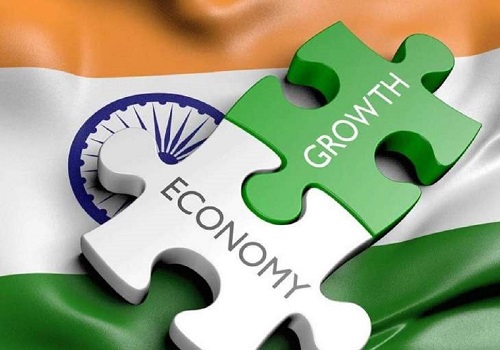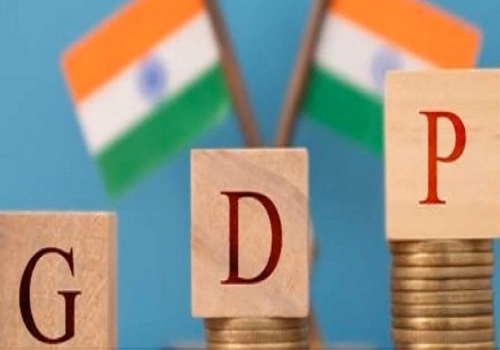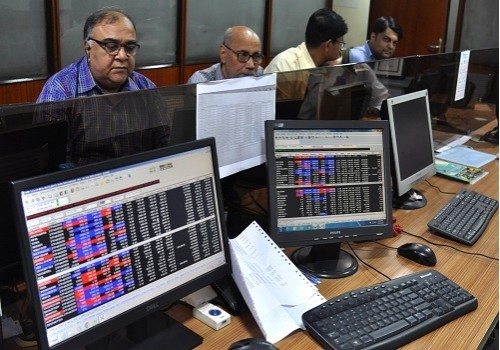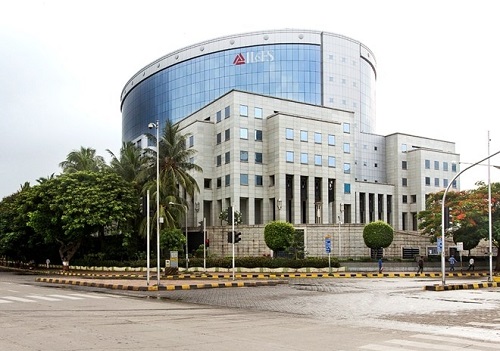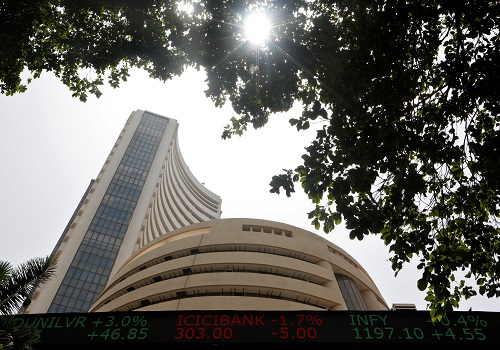MRP Agro coming with an IPO to raise upto Rs 3.24 crore

Follow us Now on Telegram ! Get daily 10 - 12 important updates on Business, Finance and Investment. Join our Telegram Channel
https://t.me/InvestmentGuruIndiacom
Download Telegram App before Joining the Channel
MRP Agro
-
MRP Agro has come out with an initial public offering (IPO) of 8,10,000 Equity Shares of face value of Rs 10 each for cash at a fixed price of Rs 40 per equity share.
-
The issue has opened on February 8, 2021 and will close on February 10, 2021.
-
The shares will be listed on SME Platform of BSE.
-
The share is priced 4 times higher to its face value of Rs 10.
-
Book running lead manager to the issue is Beeline Broking.
-
Compliance Officer for the issue is Nisha Bhagat.
Profile of the company
The company is engaged in trading of food grains, fly-ash and coal including Import and Export of such products with a large base of ever growing consumers. The company has built a strong market and purchase such products domestically for supply to its consumers. The company has trading network in urban and rural areas. As the company deals in trading of Food Grains, sales and marketing play a key role in ensuring that the corporate and products brands communicate and reach out to the customers in proper way; helping the company in selling its strong value proposition of purity, quality and healthy grains. As part of its sales and marketing efforts, the company regularly communicates with the consumer on various platforms to increase awareness of its products. The company purchases the food grains, fly-ash and coal from local market by way of auction in large quantity and further sale the products after clearing the Quality check to the wholesalers. Its business model is B2B (Business to Business Basis) as it deals in bulk trading of food grains, fly-ash and coal.
Proceed is being used for:
-
Meeting Working Capital Requirement.
-
General Corporate Purpose.
-
Meeting the Issue Expenses.
Industry overview
Indian retail industry has emerged as one of the most dynamic and fast-paced industries due to the entry of several new players. Total consumption expenditure is expected to reach nearly $3,600 billion by 2020 from $1,824 billion in 2017. It accounts for over 10% of the country’s gross domestic product (GDP) and around 8% of the employment. India is the world’s fifth-largest global destination in the retail space. India ranked 73 in the United Nations Conference on Trade and Development's Business-to-Consumer (B2C) E-commerce Index 2019. India is the world’s fifth largest global destination in the retail space and ranked 63 in World Bank’s Doing Business 2019. Retail industry reached $950 billion in 2018 at CAGR of 13% and is expected to reach $1.1 trillion by 2020. Online retail sales were forecast to grow 31% y-o-y to reach $32.70 billion in 2018. Revenue generated from online retail is projected to reach $60 billion by 2020.
Revenue of India’s offline retailers, also known as brick and mortar (B&M) retailers, is expected to increase by Rs 10,000-12,000 crore ($1.39-2.77 billion) in FY20. India is expected to become the world’s fastest growing E-commerce market, driven by robust investment in the sector and rapid increase in the number of internet users. Various agencies have high expectations about growth of India’s E-commerce market. The Indian retail trading has received Foreign Direct Investment (FDI) equity inflow totalling $2.12 billion during April 2000-March 2020 according to Department for Promotion of Industry and Internal Trade (DPIIT). With the rising need for consumer goods in different sectors including consumer electronics and home appliances, many companies have invested in the Indian retail space in the past few months.
Pros and strengths
Compliance with quality standards: The company adhere to quality standards as per industry standards as it is capable of meeting the quality standards at competitive costs, which enables it to maintain its brand image in the market. Its ability to maintain and improve the products it offers to customers enables it to generate stable revenue and minimize customer complaints. It now focuses on guiding the overall experience of its customer which is intended to upgrade the experience of customer to one of much greater engagement and satisfaction. It is very particular and stringent about hygiene and fumigation its process. Its dedicated efforts towards the quality of products helped it gain a competitive advantage over others. Its quality products have earned it a goodwill from its customers, which has resulted in repeat services orders from many of them.
Extensive distribution network: The company has developed a market to reach out to its customers across the country. The trading network services the urban and rural market alike. Supply of Goods takes place via Railways being the faster mode of transport and prefers rail to road for reaching its products. Its distribution network ensures its product availability to its customers translating into efficient supply chain, focused customer service and short turnaround times for product delivery. Its delivery base is supported by an efficient sub dealer and distribution network and sales team and making its products available on the shelf across most places at all times thereby reducing dealer stock levels and increased annual sales.
Scalable business model: The company’s business model is order driven, and comprises of optimum utilization of its resources and thereby enabling it to achieve consequent economies of scale. This business model has proved successful and scalable for it in the last financial years. It can scale upward as per the requirement generated by the company. The business scale generation is basically due to the development of new markets both international and domestic, by adopting aggressive marketing of the product, adding more products and also by maintaining the consistent quality of the product.
Risks and concerns
Seasonal business: The agro business is highly seasonal in the country. This is due to the fact that majority of the farmers depend on weather specifically for rabi crop and hence, the timing and seasonality of weather impacts the business of the company. Thus, it is subject to seasonal factors for some of its traded products, which make its operating results unpredictable. Due to the inherent seasonality of its business, results of one reporting period (quarter/half year/year) may not be necessarily comparable with preceding or succeeding reporting periods. Sometimes, if there is a slight change in timing of seasons, the sales will get deferred from one reporting period to another reporting period. The sales that were supposed to take place during one financial year will be added to sales of the next financial year and therefore results of even full financial year may not necessarily be comparable to other financial year.
Depend on limited number of customers for significant portion of revenues: A significant majority of the company’s income from operations is from sales of products like food grains, coal and fly-ash in the domestic market. It depends on a limited number of customers for a significant portion of its revenues. Revenue from its top 10 customers constituted 97.65% of total sales for the period ended September 30, 2020. Demand for its traded products is related to various factors such as easy availability of finance, demand of specific commodities and the quality of same supplied by it. Any loss of client base, out of its existing clients, will impact its overall sales, resulting in a sharp decline in its revenues. Further, it faces immense competition from other agri-commodity suppliers and processors, organized as well as unorganized, which may result in some of its customers reducing their orders to it. Any reduction in orders from its existing clients may result in a decline in its revenues. While it is constantly striving to increase its customer base and reduce dependence on any particular customer, there is no assurance that it will be able to broaden its customer base in any future periods or that its business or results of operations will not be adversely affected by a reduction in demand or cessation of its relationship with any of its major customers.
Geographical constraints: The company’s operations have been geographically concentrated in few states. Its business is therefore significantly dependent on the general economic condition and activity in the State in which it operate along with the Central, State and Local Government policies relating to agri-commodity industry. Although investment in the agri-commodity industry in the areas in which it operates has been encouraged, there can be no assurance that this will continue. It may expand geographically, and may not gain acceptance or be able to take advantage of any expansion opportunities outside its current markets. This may place it at a competitive disadvantage and limit its growth opportunities. It may face additional risks if it undertakes operations in other geographic areas in which it does not possess the same level of familiarity as competitors.
Outlook
Incorporated in 2018, MRP Agro is primarily engaged in trading and import and export of food grains, fly-ash, and coal products. The business follows B2B (Business to Business) Model, in which, it purchases products from the domestic market in bulk through auctions and sells it to wholesalers. It has a local mandi license to purchase food grains from the local market of Tikamgarh, Madhya Pradesh, and also a registered dealer with the Department of Mines & Geology, Government of Jharkhand to buy coal. The company has built a strong trading network in rural and urban areas and maintains the product quality standard through an in-house Quality Inspection Department. The company’s management team's experience and their understanding of the trading business will enable it to continue to take advantage of both current and future market opportunities. It is also expected to help it on addressing and mitigating various risks inherent in its business, including significant competition, reliance on independent agents, and fluctuations in prices. On the concern side, the company’s trading business segment is highly competitive in India. Factors affecting its competitiveness in this segment include, among other things, price and availability of products, customer satisfaction, marketing strategies, accessibility and reliability. Its business depends on consumer preferences which cannot be predicted with certainty and are subject to rapid change.
The company is coming out with an IPO of 8,10,000 equity shares of Rs 10 each at a fixed price of Rs 40 per equity share to mobilize Rs 3.24 crore. On the performance front, during the year 2019-20 the total revenue of the company increased to Rs 3634.51 lakh as against Rs 1873.31 lakh in the year 2018-19, representing an increase of 94.02 % of the total revenue. This increase was mainly due to increase in sales of products. For the year 2019-20 the profit stood at Rs 18.90 lakh as against the profit of Rs 11.96 lakh for the year 2018-19, representing an increase of 58.02% to the previous year. This increase in profit after tax is happened due to increased turnover. The company intends to improve efficiencies to achieve cost reductions so that they can be competitive. This can be done through domestic presence and economies of scale. Increasing its penetration in existing regions with new range of products, will enable it to penetrate into new catchment areas within these regions and optimize its infrastructure. Besides, the company plans to increase its customers by meeting orders in hand on time, maintaining its customer relationship and renewing its relationship with existing buyer.
